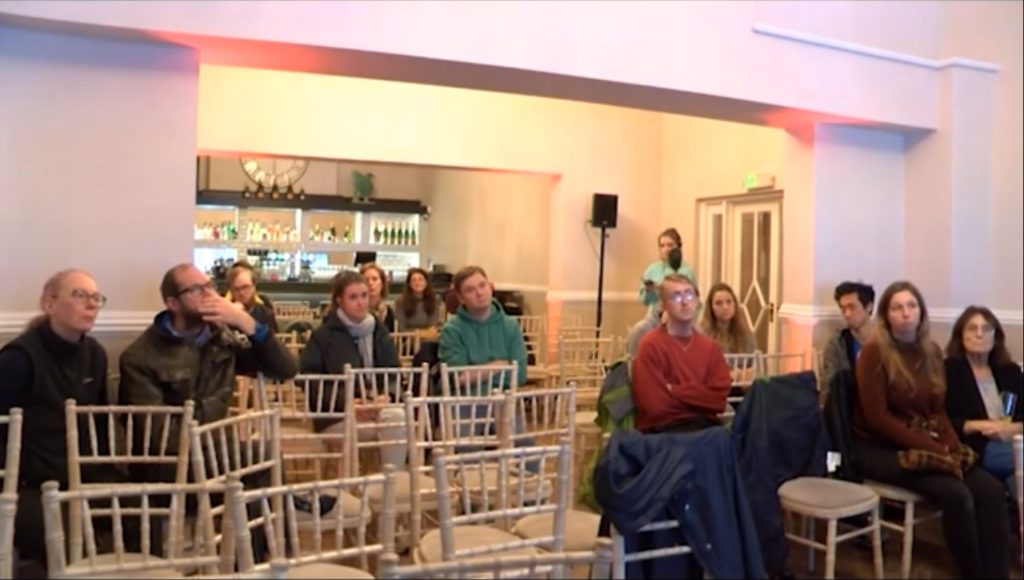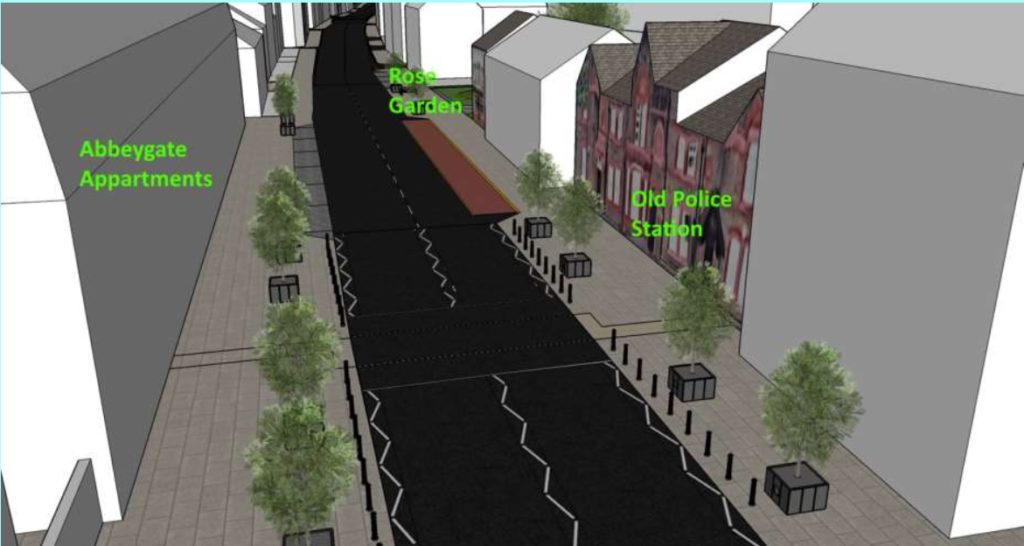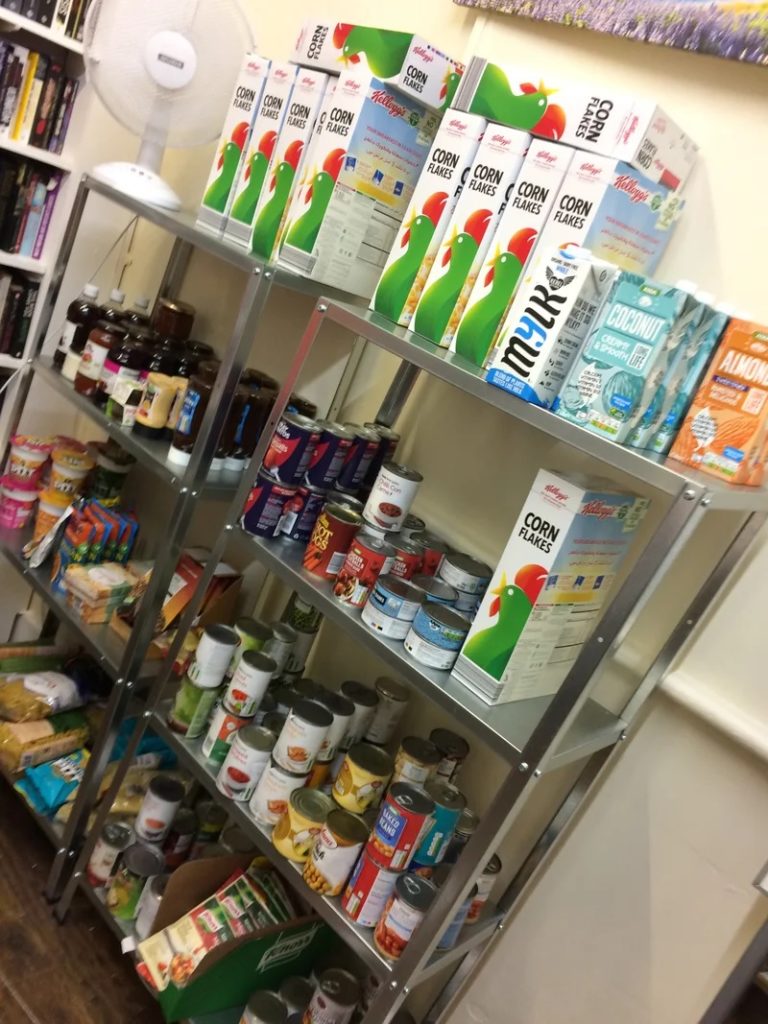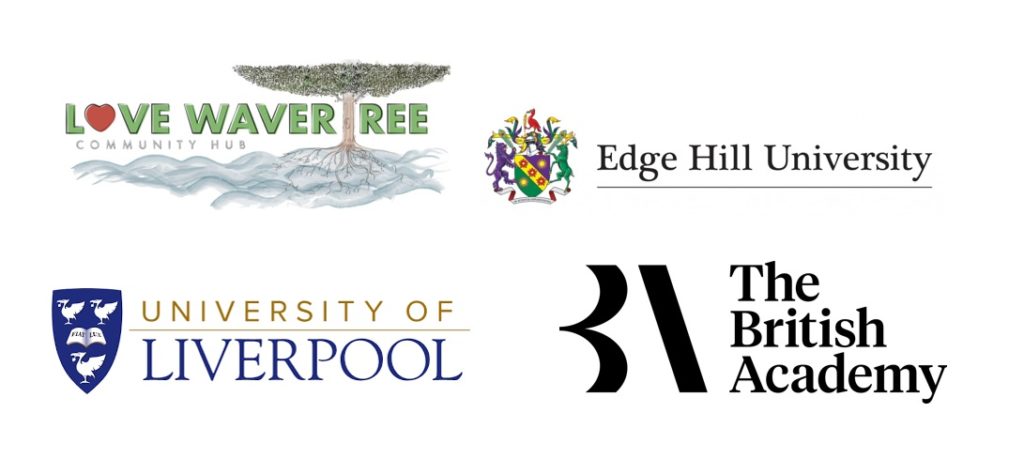This project examines how communities come to shared understandings on sustainable futures. It is a collaboration between Edge Hill University, the University of Liverpool, Love Wavertree CIC and the British Academy who kindly supports the project through expertise and funding.

We are running a series of climate assemblies to support the local community in developing their shared understanding of how they want to tackle climate change locally. More importantly, the communities recommendations for actions and policies will be fed forward to Love Wavertree and Liverpool City Council in order to help both take their own initiatives to tackle climate change to the next level.
What are the assemblies about?
The assemblies are organised around five topics:
a) Food. What we consume, how we consume it, how our food is packaged, where it is from and what we do with the leftovers are all issues to be considered when looking at climate change.
b) Housing. Liverpool is a beautiful city, but its houses are old and not made with climate change in mind. They are often badly insulated and rely on fossil fuels to be kept warm.
c) Transport. How we travel and how our streets are designed impacts on our carbon foot prints. Small things such as planters suck carbon out of the atmosphere, while safe roads and good public transport systems make us less reliant on individual cars.

d) Skill sets. A zero carbon economy actually offers many opportunities for new jobs and skills, including in the areas of technology but also in craftsmanship. Upcycled furniture and mended vintage clothes are as much part of this as the installation of heat pumps.
c) Businesses. Existing businesses have their own challenges to face to become carbon neutral. This includes the adoption of sustainable packaging as well as the installation of carbon reducing technology.
Each of these assemblies will look at local responses and suggest local solutions which can then be actioned by Love Wavertree and Liverpool City Council. Participants will hear from local experts and discuss their own experiences before deciding on ways forward.
Three of the assemblies, on food, transport and housing, will take on 9 and 10 April in Archbishop Blanch High School and Assess Education, the others will take place after Easter.
What is happening about Climate Change in Local Communities?
Often, there are a lot of good things going on in local communities already. In Wavertree, for example, there are litter picks, in bloom groups, friends of parks, food share against food waste, pollution measure initiatives, active travel campaigns and many more. But how can these small groups reach wider constituencies? And how can more people see the value of tackling climate change locally, and through these small-scale initiatives?

This is where television comes in. Television in the UK, understood as a public service, has a remit to inform, educate and entertain, and also bring communities together. Often, however, television is made away from local communities, with decisions made by people who are doing their best, but do not and cannot know the details of what is going on, on the ground, locally. This is where this initiative comes in: we are using local television, with the help of our students, to tell the local stories about climate action.
Our hope is that this will make the excellent work that is already happening more visible and provide inspirations to those who may want to do something, but do not know where to start.
To find out more, please contact Elke Weissmann, the principle investigator, at [email protected], or speak to Love Wavertree, at [email protected].

